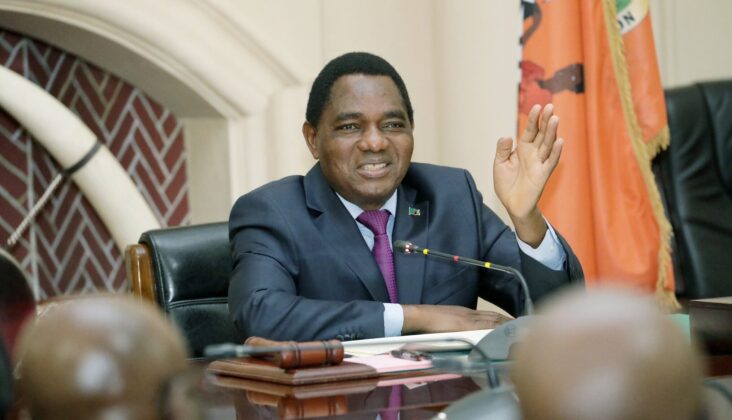[ad_1]
The ministry of finance published its medium-term budget on 9 July noting that the cancellations will reduce the risk of accumulating more non-concessional debt – but no further details were given. This decision is part of a larger debt-restructuring plan, including talks to change the law to increase parliamentary oversight on borrowing.
The budget report states that: “In line with the 2016 Constitution Act No. 2, Government is also strengthening the legal framework on public debt management through the repeal of the Loans and Guarantees (Authorisation) Act in order to among others increase Parliamentary oversight on borrowing and enhance transparency in public debt management.”
Zambia’s economy
According to the report: “Zambia’s economic development agenda has been guided by the National Vision, in which the country aspires to be a prosperous middle-income country by 2030.”
In November 2020, Zambia became the first African country to default on its debt during the Covid-19 era, opting to bow out of a $42.6m Eurobond repayment.
By the end of 2021, its external debt stood a $17.37bn, $5.78bn of which was to China. It has been in discussions with the IMF and other creditors for help.
Zambia is not alone in large outstanding debt to China. African countries’ debts with the country are reportedly a third of those owed to non-Chinese private lenders. Angola, Cameroon, Republic of Congo, Djibouti, Ethiopia and Zambia sent over a third of debt repayments to Chinese lenders in 2021. There have been various concerns about Chinese “debt traps” but “it is important to emphasize that Zambia is an outlier when it comes to the weight of Chinese loans,” says Deborah Brautigam in a China Africa Research Initiative (CARI) report.
Zambia’s economic growth is expected to slow down to 3.1% this year from 3.6% in 2021 due to a projected reduced output from the agricultural sector.
The plan states that: “Agricultural sector is expected to contract in 2022 from a growth of 17.2% recorded in 2021.” However, the ministry expects that the economy will grow by 4%, 4.1% and 4.4% in 2023, 2024 and 2025 respectively.
Looking to the future
Zambia is expecting financial assurances from its creditors by the end of this month – although no official date has been set – beginning with the first debt restructuring under a G20 framework set up during the coronavirus pandemic.
This Common Framework was agreed on by the Group of 20 major economies and the Paris Club of official creditors. Creditor committees of Chad and Ethiopia are also trying to speed up the debt restructuring processes.
The ministry of finance’s report also said the country’s medium-term macroeconomic goals for 2023-5 included keeping inflation in the single digits – 9.2% in 2023, 8.2% in 2024 and 7.3% in 2025.
Understand Africa’s tomorrow… today
We believe that Africa is poorly represented, and badly under-estimated. Beyond the vast opportunity manifest in African markets, we highlight people who make a difference; leaders turning the tide, youth driving change, and an indefatigable business community. That is what we believe will change the continent, and that is what we report on. With hard-hitting investigations, innovative analysis and deep dives into countries and sectors, The Africa Report delivers the insight you need.
[ad_2]
Source link

